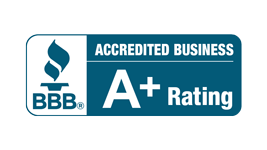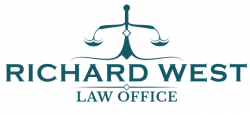The Non-Bankruptcy Options
Non-bankruptcy plans are totally voluntary agreements with creditors. Some creditors won’t negotiate much, and some not at all. Non-bankruptcy options offer no protection from lawsuits. Results vary, and the success rate is, in our experience, quite low.
There are three non-bankruptcy approaches to debt relief. They are:
Credit counseling is where you get professional help to manage your budget, freeing up more money to pay your debts.
Debt Management is where you hire a company to negotiate better payment plans with your creditors
Debt settlement is a risky game of chicken, where you hire and pay a company monthly. They hold your money and try to get your creditors to take lump sum settlements less than what you owe.
Debt management and debt settlement programs will lower your credit score, typically a lot more and for a longer time, than if you had used bankruptcy.
Call 937-748-1749 to discuss your non-bankruptcy options today.
Credit Counseling – Using “REAL” Credit Counseling Professionals
First, a word of warning. Credit counseling services online vary from legitimate operations to outright scams. Do not rely on Better Business Bureau ratings. Instead, examine the reviews posted online by actual users. Even these, however, can be false. Do your homework.
A credit counselor will sit down with you and go over your income and expenses. He or she will examine your spending and look for ways to cut back on non-essential expenses to help balance the budget.
The counselor will also suggest ways to help keep you within your budget as you move forward. For some folks, this is all that is needed.
If this is you, congratulations! You are part of a small, but fortunate, group who will be just fine with just a little sacrifice and some spending adjustments. I am a certified credit counselor, and I can tell you if this is what you need.

Debt Management Plans
For more serious debt problems, a debt management plan may be helpful. In these plans, the company you hire will contact your creditors for you, and try to negotiate a lower interest rate, better payment terms, or even get the creditor to forgive some of the debt.
Note that when that happens, you end up having to pay tax to the IRS and State for the amount forgiven, just as if it were income you earned. The plan representatives are supposed to tell you this, but I know that they often do not.
These plans are entirely voluntary, and no creditor can be forced to participate. Some will not, some will. I have never seen a situation where the management plan was able to get all of the creditors to participate, so you end up with partial relief, at best.
So long as you make your payment to the debt management company on time and don’t incur any new debt – you may be able to pay off your debts, at least the ones that will participate, in a shorter time than you would otherwise.
A debt management plan will cause your credit score to drop, and there is a special code used to identify consumer debts placed in these plans.
IMPORTANT! There are many scam debt management programs.
Many of these programs don’t work, based on my experience. Sadly, many people come to me after they get sued, while they are in one of these programs. I nearly always find that they should never have been in one of these programs to begin with!
This just proves that they did not have all their options explained to them from the start. They were “sold” the only service that the debt management company had to sell.
If you need one of these programs, I can guide you to a reputable company to help you, one with a proven track record. (I have no affiliation with them, I just know who is a “straight-shooter” and will be honest with you.)
Legal Services
Quick Reference
Get Your Free Consultation And Review All Your Options
Start the bankruptcy recovery process now with a free consultation after completing our online evaluation form.
Useful Calculators
Here are two helpful calculators for managing your debt repayments and Chapter 13 commitments.

Debt Settlement
This is sort of a game of “chicken” with your creditors. Dangerous. You are essentially “daring your creditors” to sue you and betting that they won’t. The idea here is to withhold all payment from creditors and try to force them into taking less, in a lump sum payment, for the debt you owe.
In the typical debt settlement program, you are required to make monthly payments to the settlement company, and they hold your payments and negotiate with the creditors. After you have paid them enough to settle with a creditor, perhaps for 80% of what you owe, they will make the payment in lump sum and the other 20% will be forgiven and written off as a bad debt.
You will get a 1099 C for income taxes at the end of the year. The IRS will treat the amount written off as if it were income to you and you will pay tax on that amount. So the actual savings is always less than the amount the settlement company negotiates.
Sadly, for those who later end up filing bankruptcy, the debt which would have been discharged with no tax penalty results in a tax burden that cannot be wiped out in bankruptcy. This is a pretty risky game.
Some creditors won’t settle. Instead, they quickly turn your debt over to a collection attorney, and you get sued. The debt settlement company, because they are not attorneys, cannot help you when you get sued. They cannot do anything for you, except to tell you to seek the help of a bankruptcy attorney.
Debt settlement does work – in the right situations. But not many people have the right situation for this option. I am a certified debt specialist and have seen many of these cases. If this is the best option for you, I will tell you, in detail, how they work and what you can expect.
Summary of Non-Bankruptcy Options
Non-bankruptcy options work. This a thriving, even cut-throat business, fueled by promises of debt relief that doesn’t require you to file for bankruptcy.
When they work, they are sometimes better than bankruptcy, but often the result is worse for your credit, the recovery time is sometimes years longer, and, surprisingly, the effect on your credit is actually worse than if you had filed a bankruptcy, and started over.
Fear of bankruptcy, especially fear of having bad credit because of filing bankruptcy, is one of the main reasons consumers choose debt management plans. Before you can feel confident that a debt management plan is right for you, you need to compare it to your options in bankruptcy.
Because this obviously involves legal advice, you cannot get this comparative analysis from the debt management salesperson. You have to get it from an attorney. The problem with this is that bankruptcy attorneys are not certified debt specialists. You have a problem.
Because I am both a certified debt specialist, certified credit counselor and also a board certified consumer bankruptcy specialist, I can help you compare these options so you can feel confident that you know, for sure, everything necessary to make the right choice.
Call Richard West Law Office at 937-748-1749 to further discuss your non-bankruptcy options in a free consultation.

Our Office Location
Address: 120 W 2nd St #1501, Dayton, OH 45402
Ready? Get on the Road to Financial Recovery
We are open now for remote filing and remote consultations. All consultations are free, and there is no catch. We only work with clients who want to work with us. Nothing high-pressure. We look forward to assisting you.


